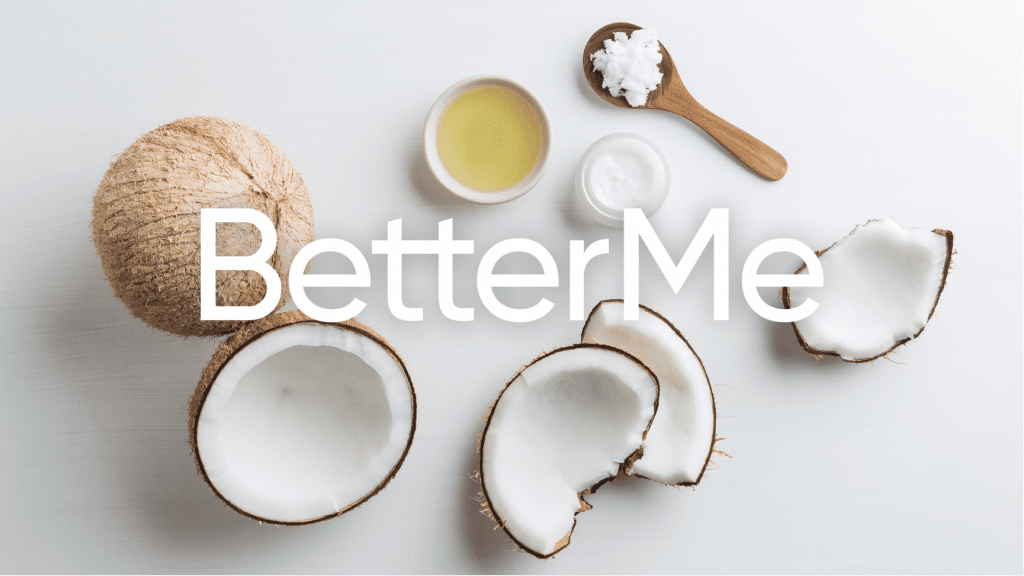Scars are something that most of us have. While some are easily hidden under clothes, others, especially on the face, arms or legs are harder to hide and often attract unwanted attention and questions from strangers. If you have visible scars, be it from a burn, an old wound, surgery, etc. you know how uncomfortable the attention can be and have very likely looked up ways to fade said scars away. Vitamin E for scars or rather Vitamin E oil for scars is one remedy that is almost always presented to people looking to fade away or reduce the appearance of blotches or marks on their skin. But wait, does it really work or is it simply a marketing ploy? If you’ve been looking for more information on the question ‘does vitamin E help with scars?’ then this article is for you. Read on to find out what actual scientific research says about this topic.
What Is Vitamin E?
Before delving into the vitamin E scar treatment discussion, what exactly is vitamin E?
Vitamin E is a naturally occurring fat soluble vitamin that can be found in different foods. What many people don’t know is that Vitamin E is not just one thing, but in fact, it is a collective of eight nutrient forms, namely alpha-, beta-, gamma-, and delta-tocopherol and alpha-, beta-, gamma-, and delta-tocotrienol. Of these eight forms, the human body only uses alpha-tocopherol as it’s the only one that meets the requirements of our body.
This vitamin is not naturally made in the human body so we have to get it from food sources. Foods that are naturally high in vitamin E include
- Almonds – both the nuts and the oil
- Sunflower seeds and oil
- Wheat germ oil
- Nuts like Hazelnuts, pine nuts and Brazil nuts
- Leafy greens like spinach, collard greens, broccoli and beet greens
- Avocados
- Seafood e.g. rainbow trout, crayfish, octopus, lobster, crayfish, cod, Atlantic salmon, abalone, snails and fish roe.
- Mangoes
- Red bell pepper
- Peanuts, peanut oil and peanut butter.
Once consumed, vitamin E is stored in the liver as well as in fatty tissue. Some uses of in the body include acting as an antioxidant fighting against free radicals to protect cells against damage, supporting the immune system, thus protecting you against disease causing bacteria and viruses, indirectly dilating blood vessels to prevent the formation of clots, and much more (4).
Read More: Vitamin K2 Benefits: Why This Little Known Nutrient Is Essential To Your Diet
Is Vitamin E Good For Scars? What Research Says?
Does Vitamin E oil help with scars? While a lot of creams have this vitamin listed among the ingredients and some online sources claim that it will help fade away scarring, scientific evidence points to the contrary.
Here is scientific evidence on the effect of topical Vitamin E scar treatment
- An article published in The New York Times shows that vitamin E is not only not beneficial to the treatment of scars, but in some cases can actually make the problem worse.
The article mentions one study published in 1986 where researchers followed 159 burn victims. They were divided into 2 groups, one group applying Vitamin E and another using a different cream. At the end of the year-long study, researchers saw that the study participants who used Vitamin E showed no improvement in the size, thickness or appearance of their scars (1).
- In another study published more than a decade later in 2001, researchers found that topical use of Vitamin E on scars was a bad idea and could lead to more problems.
In the study the participants, all recent skin cancer surgery patients were given 2 creams – one a simple aquaphor ointment while the other was aquaphor mixed with vitamin E. the patients are told to apply one ointment on one half of their scar and the other ointment on the other half.
After 12 weeks of this, the researchers, patients and an independent observer all noticed that not only did this vitamin not improve the appearance of scarring but in some cases it made the issue worse. Some of the patients in the study (33 percent) developed contact dermatitis – an allergic reaction – to the ointment that had vitamin E mixed in it (2).
- In another study review published in 2016 in the Aesthetic Surgery Journal researchers concluded that there is not sufficient evidence for the topical use of Vitamin E to help fade away scars.
In the review, researchers looked at 6 studies altogether. Results from three of the six studies showed no significant scar appearance improvement when using topical vitamin E as monotherapy – the treatment of a disease/illness using 1 drug. In two of these studies, the reviewers also noticed that the patients reported contact dermatitis and an increased incidence of itching and rash after applying Vitamin E on themselves as a mode of scar management and healing (3).
- Another review published in the Indian Dermatology Online Journal researchers looked at the uses of Vitamin E in various cosmetic uses.
In the review, researchers once again concluded that the topical use of Vitamin E in the treatment of burns, surgical scars, and wounds is not as effective as often advertised. Findings were disappointing at best (6).
- An article published in 2006 in the Canadian Family Physician journal also stated that the belief of vitamin E being good for scar management is mostly anecdotal – i.e. based on personal accounts rather than facts or research.
Not only did the study outline multiple studies where the use of vitamin e oil and ointment didn’t improve the appearance of scars but it also pointed out cases where topical vitamin E use even worsened the cosmetic appearance of scars. This should not be used to treat scars on children (5).
Reasons why BetterMe is a safe bet: a wide range of calorie-blasting workouts, finger-licking recipes, 24/7 support, challenges that’ll keep you on your best game, and that just scratches the surface! Start using our app and watch the magic happen.
FAQs
Does Vitamin E Oil Help With Acne Scars?
No, it does not.
As seen above, all scientific studies warn against the use of vitamin E oil for scars. At best, the oil will do absolutely nothing for your acne scars and at worst, you may end up with contact dermatitis.
Remember that contact dermatitis symptoms include rashes, redness, blister, fissures, hives, peeling, or ulcers all accompanied by itching or swelling. This is not something that you want to risk having on your skin, on top of acne scars.
Does Liquid Vitamin E Help Scars?
As previously mentioned, the topical use of vitamin E will likely not do anything for your existing scars. If you have more sensitive skin, you might end up with an unsightly reaction.
Does Vitamin E Fade Scars?
No, it does not.
Read More: Is Vitamin C Good For Hair? A Detailed Guide
The Bottom Line: Does Vitamin E Help With Scars?
No, it does not. So far, most of the existing proof that Vitamin E is effective for scar management or treatment is anecdotal. Scientific studies continue to show that using Vitamin E for scar treatment has no effect on the appearance of these marks. It does not reduce their size nor fade them. In some cases, it will also irritate your skin through contact dermatitis.
Instead of trying to use homemade oils or treatments to manage scarring, please speak to a dermatologist to find a better oil or ointment to help finally take care of any scars you might have – be they from acne, trauma wounds, surgery, etc.
DISCLAIMER:
This article is intended for general informational purposes only and does not address individual circumstances. It is not a substitute for professional advice or help and should not be relied on to make decisions of any kind. Any action you take upon the information presented in this article is strictly at your own risk and responsibility!
SOURCES:
- The Claim: Vitamin E Helps Remove Scars (2007, nytimes.com)
- The Effects of Topical Vitamin E on the Cosmetic Appearance of Scars (2001, onlinelibrary.wiley.com)
- The Role of Topical Vitamin E in Scar Management: A Systematic Review (2016, academic.oup.com)
- Vitamin E (2021, ods.od.nih.gov)
- Vitamin E for treating children’s scars (2006, ncbi.nlm.nih.gov)
- Vitamin E in dermatology (2016, ncbi.nlm.nih.gov)















